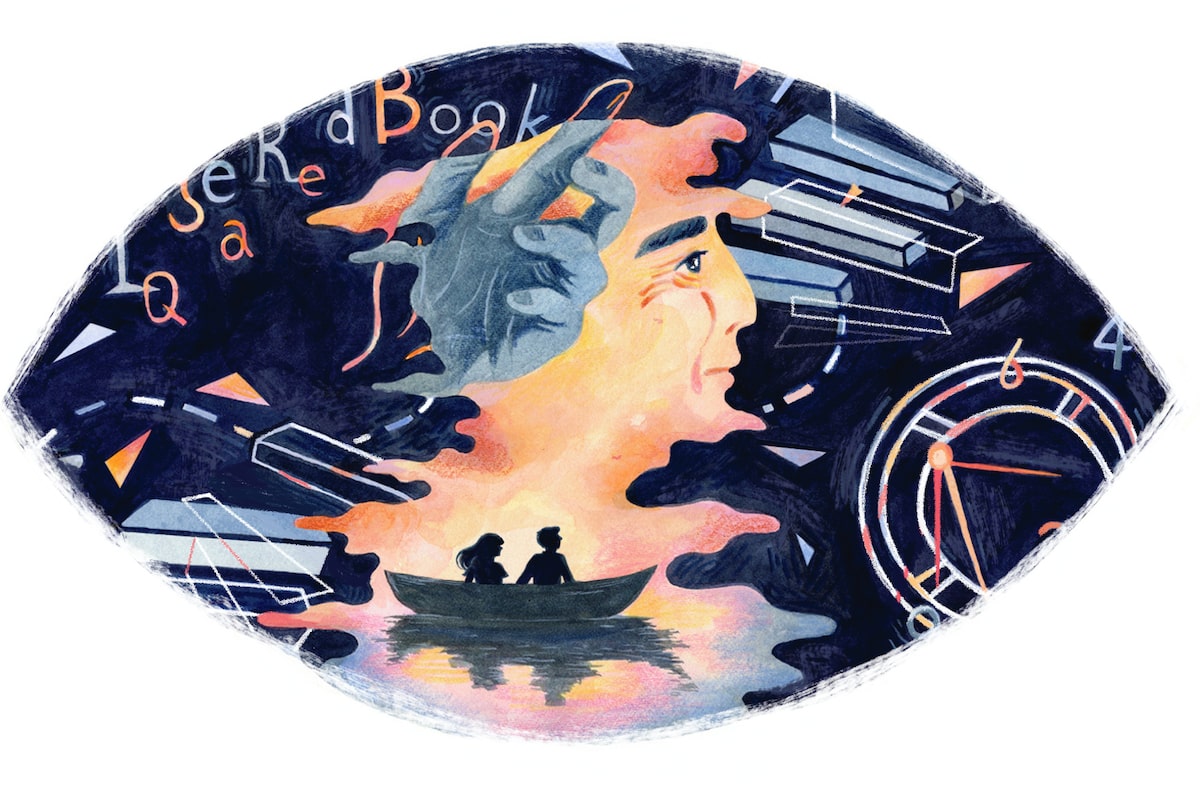Illustration by Christine Wei
First Person is a daily personal piece submitted by readers. Have a story to tell? See our guidelines at tgam.ca/essayguide.
I never imagined that at 50, I would be a caregiver to my husband, just 59, while raising our two children, 13 and 11. Two years ago, Andrew was diagnosed with young-onset Alzheimer’s disease, a rare variant form called posterior cortical atrophy, or PCA. Before this, I had never even heard of PCA. Now it defines our lives. Few people understand the grief, loneliness and bursts of humour that come with it.
The road to my husband’s diagnosis was long. His first symptoms were with vision. Optometrists said his eyesight was fine. Having worked in healthcare, he thought it might be stress. Then came an epilepsy diagnosis, which never felt right. We clung to it anyway, hoping it explained what was happening. When the truth came, it was like being hit by a truck – absolute devastation.
My husband is a fixer. His career was in change management and leadership, and he ran his own company. His motto was, “Every day is race day.” He wove dragon boating into corporate culture, showing people how to move forward together. Now I ask myself daily: how do I and our children find that same strength?
I knew Parkinson’s disease would change our lives, but it was harder than I expected
The first loss was his career in health care. But instead of giving up, he found purpose at a community centre, supporting kids. One day, when a child noticed his shirt was on backward, Andrew smiled and said, “It’s backward day.” That moment taught me perspective: I must adapt, separate the disease from him and let go of anger and love my new person.
Unlike typical dementia, PCA primarily affects visual-spatial awareness. From the outside, Andrew looks fine. But everything has changed. He often bumps into walls, can’t tell if he’s holding something and can no longer read or write. He relies on voice-to-text. I still remember the first, traumatizing appointment with a neurologist saying, “As the caregiver, know that this disease will not make him aggressive, because of where the changes are happening in his brain.”
Caregiver? I didn’t want that word. The shift from wife to caregiver was instant and soul crushing.
I’ve been approved for MAID. And now I must figure out when
My husband refuses to let his diagnosis define him. He rejoined a dragon boat team and when that became impossible, he turned to improv acting. He is an eternal optimist. If you asked him how he is, he’d say, “Great!” Sometimes that optimism makes me want to scream, but mostly I’m inspired by it.
At the same time, my heart aches most for our children. Their dad can no longer read bedtime stories, help with homework or walk easily through crowded spaces. Stairs terrify him; he perceives them as shifting beneath his feet. I find myself constantly on alert so he doesn’t lose sight of me. Yet he can articulately describe his world with remarkable clarity.
To help friends understand, we share a short video, Do You See What I See? on Rare Dementia Canada’s website. It mirrors his experience so closely that when our youngest saw it, he said, “Dad, I finally understand you.”
Daily life is full of surreal moments. Once, he held up an empty hand and asked, “What do you want me to do with this lime?” When I said, “What lime?” he replied, “Oh, it disappeared.” Objects vanish. Shoes go missing. Getting dressed is very difficult. In winter he may stand frozen in the rain, unable to put on his coat. I’ve placed red stickers around the house as cues, but it is still overwhelming.
Only about five per cent of Alzheimer’s patients have PCA, yet its impact is profound. There are few supports. Most groups cater to older people with different symptoms. I work full-time and online groups meet during the day. My husband feels isolated, too, without peers who understand.
Recently, we took a canoe out on the river near our home. I quickly realized it was no longer safe. He couldn’t judge how to get in, couldn’t paddle as before, sometimes not even knowing if his paddle touched the water. My heart broke. It was in a canoe in Algonquin Provincial Park where I first told him I loved him. To lose that was another devastating loss. Yet as we sat there, I realized: we are still a team, navigating uncharted waters. The river mirrors Alzheimer’s. The river is unstable, like the illness. Each stroke is uncertain. But still, you paddle forward – one stroke, then another. Some days are easier, others harder but you keep moving.
My caregiving is about creating a safe home for someone who may go blind. It is a journey of grief, resilience, love and humour – magical moments keep us afloat.
Dementia is not one story – it is many stories. More research is desperately needed into PCA, and care models must evolve to support patients and their partners.
This journey is not what I wanted, but it is ours. Like the river, we keep moving forward with the race against time.
Karina Acton Reid lives in Richmond, B.C.

